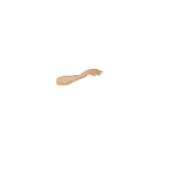I,you,we,they.he.she,it and her,has,them,点用?還有我要更多依D的字!!!??
2007-05-25 12:30 am
I,you,we,they.he.she,it and her,has,them,点用?還有我要更多依D的字!!!??
回答 (1)
2007-05-25 1:00 am
✔ 最佳答案
hmm, 希望我無get錯你既問題啦I, we, you, they, he, she, it哩幾個都pronoun, 即係代替名字, 主語既字
即係好似Mary咁, Mary就係一個女仔名,
如果第1句講: Mary is a good student,
下一句就可以係either "She is hard-working"或者"Mary is hard-working"
但係後者就略嫌麻煩同沉氣左少少, 所以用前者"She"泥代替會比較好
I
解釋: 我
例子: I am xx years old
We
解釋:我們
例子:We went to the cinema yesterday.
You
解釋:你/ 你們
例子:You should't go there.
They
解釋:他們
例子:They are my friends
He
解釋:他(Male)
例子:He is a boy...... (好廢....)
She
解釋:她(Female)
例子:She is a girl (.....)
It:
解釋:牠(動物)/ 它(死物)
例子:It is a dog (.......)
另外, *I, we, you, they, he, she, it*就係代替主語嫁啦
代替object既(即係被動的話), 就會係
*me, us, you, them, him, her, it*
me
解釋: 我
例子:He hit me yesterday.
us
解釋:我們
例子:He went to the cinema with us.
you
解釋:你/你們
例子:I hate you
them
解釋:他們
例子:I don't really like them.
him
解釋:他(男仔)
例子:I beat him
her
解釋:她(女仔)
例子:I made her cry
it
解釋:牠(動物)/ 它(死物)
例子:I ruined it
跟住, 就有一種叫possessive pronoun(佔有代名詞???)同possessive adjective(佔有形容詞???)
就係*mine, ours, yours, theirs, his, hers, its*
mine
解釋: 我的(東西/ 人etc.)
例子:The book is mine. (這本書是我的東西)
ours
解釋:我們的
例子:Those pencils are ours.
yours
解釋:你的/你們的
例子:It belongs to yours (這個屬於你們的東西)
theirs
解釋:他們的
例子:These things all are theirs (這些東西全部都是他們的)
his
解釋:他的(男)
例子:The girl is his. (那個女孩是他的)
hers
解釋:她的(女)
例子:The boy is hers (... 那個男孩是她的...- -)
its
解釋:牠的(動物)/ 它的(死物)
例子:The nest is its (這個巢是牠的)
possessive adjective就是:
my
解釋:我的(形容詞)
例子: This is my pencil case. (這是我的筆袋)
your
解釋:你的/ 你們的
例子:Is it your book? (這是你的書嗎?)
our
解釋:我們的
例子:He is our friend. (他是我們的朋友)
their
解釋:他們的
例子:Their country is now having a huge economic burden(他們的國家現正有一個很大的財政負擔)
his
解釋:他的(男)
例子:Mary is his girlfriend. (Mary是他的女朋友)
her
解釋:她的(女)
例子:Tom is her boyfriend (..... Tom是她的男朋友...)
its
解釋:牠的(動物)/ 它的(死物)
例子:Where is its nest? (牠的巢在哪裡?)
2007-05-24 17:15:39 補充:
另外has, have, had哩個都係"有" "有過"既意思只係唔同情況用hastense:現在式用處:當subject係"He, she, it"例子: He has a doghavetense:現在式用處:當subject係"I, we, you, they"的時候例子:I have a pencil (...)
2007-05-24 17:16:13 補充:
is/am/are havingtense: 現在進行用處:is就是he, she, it時用, am就係 I 時用, are就係they, we, you時用例子:We are having lunch together now. (我們現在正在一起吃午餐) was/ were havingtense:過去進行用處:was係i, he, she, it時用, were就係you, we, they時用例子:I was sleeping. (我剛才正在睡覺)
2007-05-24 17:16:31 補充:
重有其他的, 不過都係差唔多, 例如係future continuous,就係will be having (全部pronoun), future continuous就係你ok肯定將來你會係做緊哩樣野hadtense: 過去式用處: 只要係過去式就可以, 無論乜野係subject例子: I had lunch with Susan yesterday.present perfect, past perfect果d我唔講了=.=其實都係差唔多principle既野principle熟左之後就唔係大問題
2007-05-24 17:17:09 補充:
furthermore, 我諗你話"要多d依d字", 應該do同does哩d都計掛係有"做", "有"的意思do, does, did, done, is/am/are doingdo用處:用係"i, they, you, we"例子:I do my homework every day.does用處:"he, she it"例子:He does his homework every day.
2007-05-24 17:17:23 補充:
did用處:用係所有pronoun度, 只要係過去式就可以例子:He did all his work yesterday.done (
收錄日期: 2021-04-15 23:52:39
原文連結 [永久失效]:
https://hk.answers.yahoo.com/question/index?qid=20070524000051KK03083

